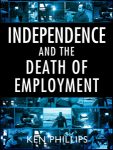 In late April, we alerted you to the new Australian Taxation Office (ATO) reporting rules for gig workers. We had some queries asking, “what are ‘gig’ workers?” That’s a pretty sensible question.
In late April, we alerted you to the new Australian Taxation Office (ATO) reporting rules for gig workers. We had some queries asking, “what are ‘gig’ workers?” That’s a pretty sensible question.
Last week I posted the answer on Substack. You can read ‘To Gig or Not to Gig’ (it’s free!)
Yes, icons of global popular culture such as Mick Jagger, Beyoncé and Harry Styles are all gig workers.
And (believe it or not) gig work is even older than Mick Jagger! Wow! I wonder if Mick’s eight children—particularly his youngest child, six-year-old Deveraux—would realise that Mick’s a gig worker? They probably wouldn’t care…
But the ATO does care about who is a gig worker. And the Albanese government, under Minister Burke, wants to kill off gig. But we assume that it wouldn’t give PM Albanese any ‘Satisfaction’ to attack Jagger, and anyway ‘You Can’t Always Get What You Want’.
But the ATO is really looking at this as a Satellite issue (apologies to Mr Styles).
What the ATO is focused on is the type of gig work that’s done through platforms. No, not the ‘stage’ platforms that Mick, Beyoncé and Harry work on, but the ‘tech’ platforms that Uber and other such companies use to organise work. The ATO calls it the sharing economy.
What the ATO wants to do is track your income if you work as a ride-share driver, rent out your flat/house/room for short-term accommodation and so on. The ‘platform’ companies will be required to report your income to the ATO starting on 1 July 2023 (i.e., soon!) The platform companies will require information from you, notably your:
- ABN and business/trading name (where applicable);
- first, middle and surname/family name (for individuals);
- date of birth (for individuals);
- residential or business address;
- email address and telephone numbers; and
- bank account details.
But we suspect they’d have all this information anyway. The ATO has provided a detailed explanation here.
And just to ensure the message gets through, to steal a line from Beyoncé, these new gig reporting rules also apply to Single Ladies! (But presumably won’t apply if you’re still in nappies.)
 This is to alert SEA members and subscribers about new laws affecting you if you earn income through ‘gig’ platforms. As of 1 July 2023, the platforms will be required to report your income to the Australian Taxation Office. The move is directed to identifying undeclared income and will eventually apply to GST compliance.
This is to alert SEA members and subscribers about new laws affecting you if you earn income through ‘gig’ platforms. As of 1 July 2023, the platforms will be required to report your income to the Australian Taxation Office. The move is directed to identifying undeclared income and will eventually apply to GST compliance. We’ve
We’ve  I let you know a little while ago that I’ve started posting as a Substack writer. Substack is for obsessive writers (like me). I’ve called my Substack
I let you know a little while ago that I’ve started posting as a Substack writer. Substack is for obsessive writers (like me). I’ve called my Substack  I explain that:
I explain that: This article looks at the labour academic argument that self-employed people can be a ‘little bit an employee’. I explain that:
This article looks at the labour academic argument that self-employed people can be a ‘little bit an employee’. I explain that: You may not be aware that I published a book on this in 2008. I’ve decided to make this available through Substack in serialised, chapter format. I’ll progressively release chapters. In this first release I provide the book’s Introduction. In it I quote Roman Emperor Caligula who stated:
You may not be aware that I published a book on this in 2008. I’ve decided to make this available through Substack in serialised, chapter format. I’ll progressively release chapters. In this first release I provide the book’s Introduction. In it I quote Roman Emperor Caligula who stated: The speed with which Australia’s fundamental operational structures are being changed is quite breathtaking.
The speed with which Australia’s fundamental operational structures are being changed is quite breathtaking. The Australian Taxation Office views small business tax debt as a major problem. The ATO says that
The Australian Taxation Office views small business tax debt as a major problem. The ATO says that  In late October this year the Victorian Labor Government announced new gig laws it intends to introduce. The promised laws have all the nice-sounding language of ‘rights’ for gig self-employed people, but in fact the laws amount to a stripping of rights.
In late October this year the Victorian Labor Government announced new gig laws it intends to introduce. The promised laws have all the nice-sounding language of ‘rights’ for gig self-employed people, but in fact the laws amount to a stripping of rights. Despite the Albanese government’s description of self-employed
Despite the Albanese government’s description of self-employed  If you’ve ever been to a pub gig, you’ll have taken part in what the Albanese government wants to (effectively) close down. The Albanese agenda is starkly clear after Workplace Relations Minister Tony Burke declared the ‘gig economy’ is a ‘cancer’.
If you’ve ever been to a pub gig, you’ll have taken part in what the Albanese government wants to (effectively) close down. The Albanese agenda is starkly clear after Workplace Relations Minister Tony Burke declared the ‘gig economy’ is a ‘cancer’. I’ve been in London over the last week-and-a-bit. We (SEA) have a long association with several UK self-employed associations and have been working with them on common issues to defend self-employed people. Hence the London presence.
I’ve been in London over the last week-and-a-bit. We (SEA) have a long association with several UK self-employed associations and have been working with them on common issues to defend self-employed people. Hence the London presence.